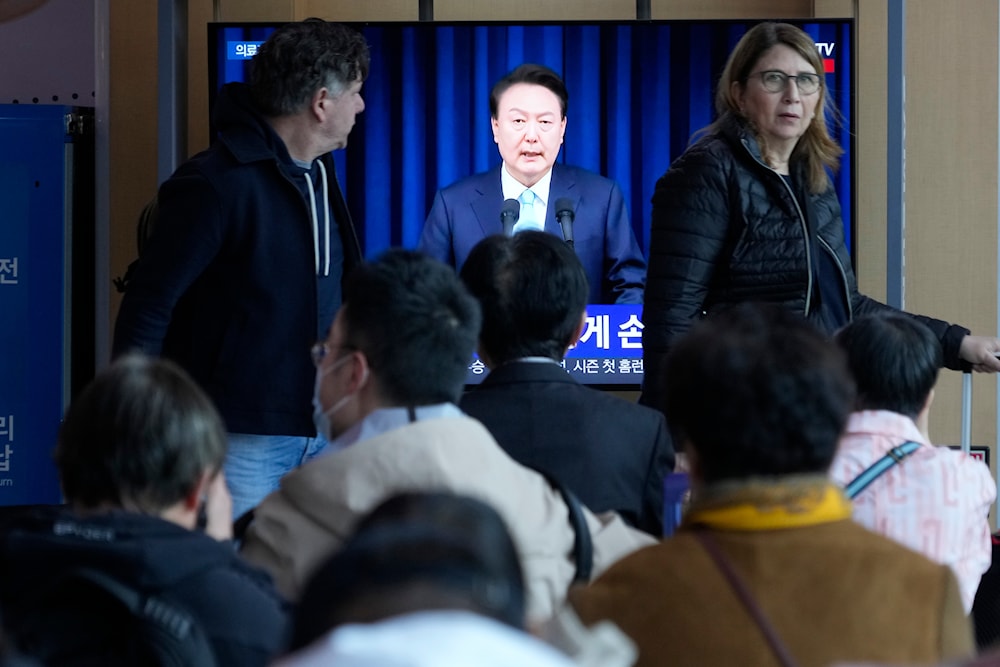S. Korean Pres. calls out 'cartel of doctors' on strike for reforms
In light of the suspension of medical licenses of thousands of doctors, South Korea's president calls on medics to return to hospitals before the suspension process is complete.
-

People watch a TV screen showing a live broadcast of South Korean President Yoon Suk Yeol addressing the nation at the Seoul Railway Station in Seoul, South Korea, Monday, April 1, 2024. (AP)
In a televised address, South Korean President Yoon Suk Yeol called out on Monday the "cartel" of doctors on strike against government reforms to the sector.
In the address, Yoon said, "The number 2,000 is not a random figure we came up with. We have thoroughly reviewed relevant statistics and research and reviewed present and future medical situations," noting that this still won't meet the increase in demand areas outside the capital Seoul.
Medical professionals have strongly opposed a new government proposal to significantly increase medical school admissions by 2,000, arguing that it could negatively impact the quality of healthcare services. Critics argue that doctors are primarily worried about potential reductions in their salaries and social standing resulting from the reform.
In light of the suspension of medical licenses of thousands of doctors, the president called on medics to return to hospitals before the suspension process was complete.
He continued that "the cartel of doctors had been strengthened" by every failure that previous governments had in increasing admissions. "We cannot repeat the same mistake again".
Read next: South Korea warns doctors to halt protest at risk of prosecution
He warned that if doctors do not agree with the current plan, then "they should present the government a unified blueprint with clear scientific reasoning," adding, "If they bring an alternative that is more rational and reasonable, we can talk anytime."
Take it or leave it
Despite opposition from doctors, the plan has garnered public support, with experts suggesting that the public is weary of extended wait times at hospitals. A recent Korean Gallup poll revealed that over 75% of respondents favor the plan, irrespective of their political affiliations.
However, doctors have vehemently opposed the plan, with the Korean Medical Association likening the government's legal threats to a "witch hunt".
Vice Minister Park emphasized that the plan is essential in South Korea's rapidly aging society. Without an increase in the current quota, doctors would face an "exponential demand" that could potentially overwhelm the healthcare system in the future.
"Hospitals are already having a hard time finding doctors now, and problems of accessing medical service in time have occurred repeatedly," Park added.
Over 700 trainee doctors have tendered their resignations, as reported by the government.

 3 Min Read
3 Min Read








